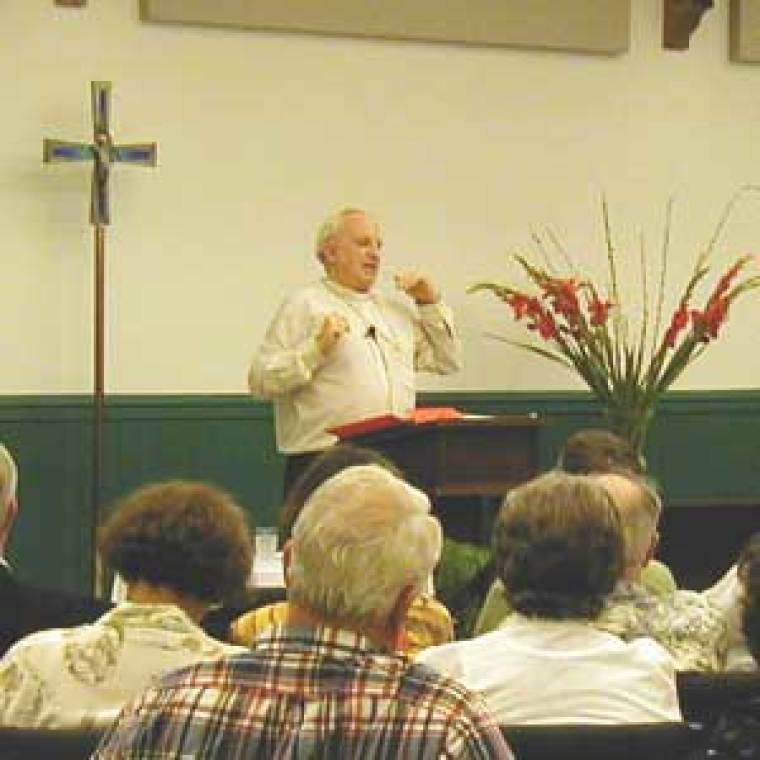
Based on "Status of Global Mission, 2005, in context of 20th and 21st centuries", a research carried out in America by the Centre for the Study of Global Christianity, the membership of churches in Africa is now close to 390 million. The congregations have been boosted by more than three times over the past 35 years. It is believed that the growth is faster than any since the earliest years of Christianity.
The study entitled "World Christian Trends" by the Centre, now shows that white Europeans and Americans account for only 43 per cent of the world's Christians.
The research centre is part of the Gordon-Conwell Theological Seminary in South Hamilton, Massachusetts which is centred at Protestant Christian faith.
These statistics have clearly reflected a transformation of world Christianity. Bishop Michael Coleman, the vice-president of the Roman Catholic Bishops' Conference of Southern Africa said to the London Telegraph, "We are seeing a shift from a Eurocentric base for the Christian churches to a more worldwide base, including Africa and South America."
"Already, there's a small movement sending African clergy to Europe to re-evangelise people there. The centre of gravity of Christianity is shifting to the south," he continued.
Further statistics show that according to the projection of the current trend, Africa's congregation is likely to grow by another 200 million by 2025. In contrast, the size of Europe’s Christians is expected to shrink by 17 million over the next two decades due to the ageing congregations and the declining church service attendances.
While Europe's churches, including those in Russia, still have 531 million worshippers, only about 10 percent regularly attend services and in Britain, the figure falls to a shocking seven percent.
Bishop Coleman tried to analyse the reason behind this drastic transformation. He gave credit to the foreign missionaries, and a majority of British, who brought Christianity to Africa. However, he commented that compared to places that are abundant in physical wealth, the unprivileged countries are usually "fertile ground for the spread of Christianity".
"There's no doubt about that," he said to the London Telegraph. "If you look elsewhere in the world, you find that people in the flush of newly acquired wealth find their existence through this wealth and they no longer turn to God."
Despite Roman Catholics and Anglicans being the pioneers of Christianity in African countries and being the oldest established denominations in the world, Bishop Coleman observed that the evangelical movement in Africa is very active and has accounted for the overall development of Christianity in the continent.
The role of Africa's satellite television channels in evangelism is remarkable, according to Bishop Coleman. They broadcast many Christian programmes in both English and native languages. One evangelical channel, broadcast in Uganda, shows long queues of people, many claiming to be deaf, others blind or lame, who are apparently cured when a preacher lays hands on them one by one. In South Africa, a 24-hour premium rate telephone "prayer line" has been firmly established.
Bishop Coleman said that Roman Catholics and Anglicans are losing ground to these evangelicals. On the other hand, it is undeniable that they still account for about half of Africa's Christians and the global hierarchy of these two churches is rising.
Cardinal Francis Arinze, Archbishop of Onitsha in Nigeria, has been named as a possible successor to the Pope. In addition, Peter Akinola, the Anglican Archbishop of Abuja in Nigeria, has been central to the conservative opposition to the ordaining of practising homosexuals.
In a conference of 100 Catholic bishops and archbishops from Europe and Africa in November 2004, the initiative to "re-evangelise the West" was raised in the wake of the decline of Christianity in Europe. It was proposed that African priests from parts of the continent where vocations are thriving would send priests to parts of Europe that are desperate for clergy.
Archbishop John Onaiyekan, the President of the Council of Bishops' Conferences of Africa and Madagascar said, "I believe priests from places like Nigeria can re-evangelise Europe. Just 150 years ago, it was Europeans who were doing the evangelising. Now we should have the two Churches doing the work - Africa and Europe."